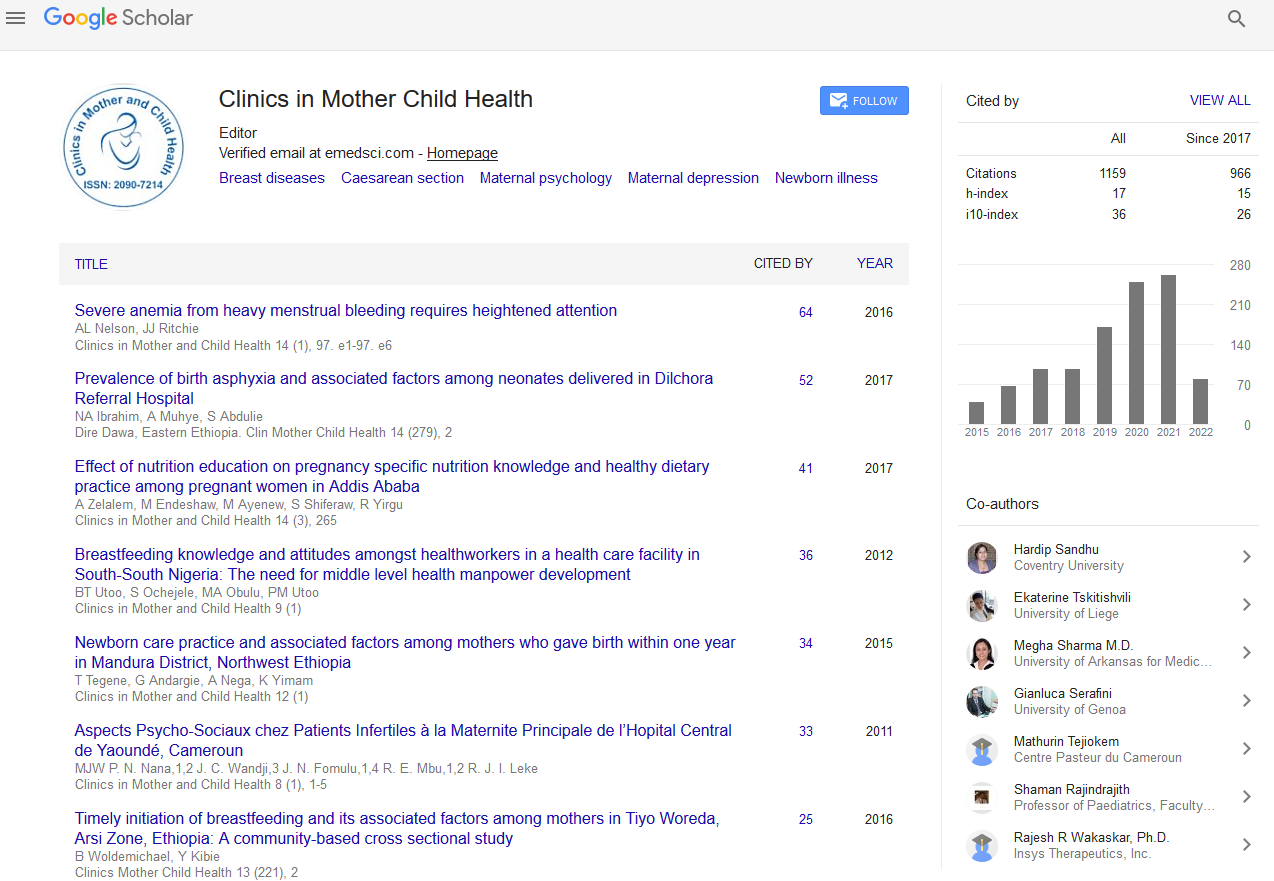Indexed In
- Genamics JournalSeek
- RefSeek
- Hamdard University
- EBSCO A-Z
- Publons
- Geneva Foundation for Medical Education and Research
- Euro Pub
- Google Scholar
Useful Links
Share This Page
Journal Flyer

Open Access Journals
- Agri and Aquaculture
- Biochemistry
- Bioinformatics & Systems Biology
- Business & Management
- Chemistry
- Clinical Sciences
- Engineering
- Food & Nutrition
- General Science
- Genetics & Molecular Biology
- Immunology & Microbiology
- Medical Sciences
- Neuroscience & Psychology
- Nursing & Health Care
- Pharmaceutical Sciences
Abstract
Prevalence of Malaria at Booking among Antenatal Clients in a Secondary Health Care Facility in Abeokuta, Nigeria
Idowu OA, Sokunbi OA and Babalola AS
This study aims to determine the prevalence of malaria and anaemia among pregnant women attending their first antenatal care booking in Abeokuta. Blood samples were collected from 222 randomly selected pregnant women attending their first antenatal clinic in a secondary health facility in Abeokuta, Ogun State, Nigeria. Blood samples were screened for malaria parasites using thick film and observed under the microscope. Anaemia was investigated among subjects using haematocrit. Questionnaires were administered to obtain demographic and medical information and data collected were analysed using SPSS 16.0. The prevalence of malaria parasitaemia was 113(50.90%), and 123(55.0%) were anaemic. The prevalence of anaemia was found to be high 69(61.1%) among the pregnant women that tested positive to malaria parasite compared with those that tested negative (48.6%). A high prevalence of malaria parasite infections (60.0%) was recorded among the teenagers (16-19years) compared to that of their older counterparts; 20-30years 65(47.8%) and above 30years 36(54.5%). A high proportion of the multigravidae (55.9%) were positive for malaria parasite, followed secundigravidae (50.7%), while the primigravidae recorded the lowest 44(47.8%) prevalence of malaria infections. Pregnant women that booked for ANC within their first trimester recorded a relatively low prevalence of malaria parasite infections 20(48.8%) compared to those within their second 90(50.8%) and third trimester 3(75.0%) respectively. many pregnant women who start visiting ANC are already malaria positive and anaemic. While IPTp is not recommended until after quickening, an earlier start of LLIN usage, iron and folate supplementation, even before booking, may be beneficial. As the first step, health education strategies should emphasize early clinic attendance.


